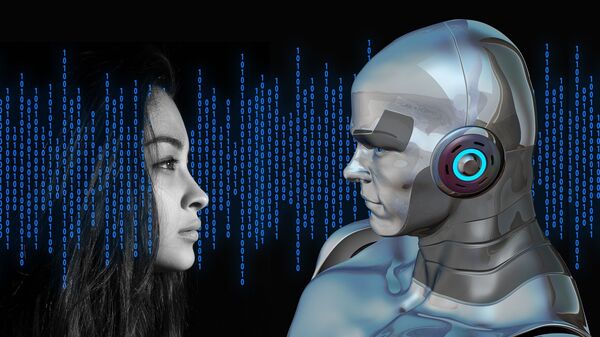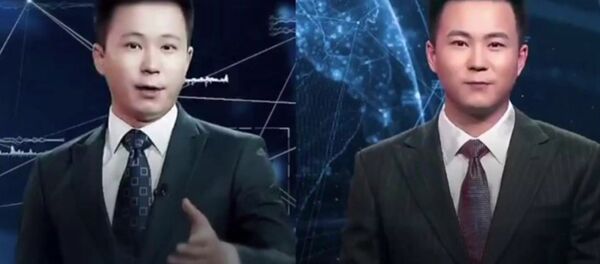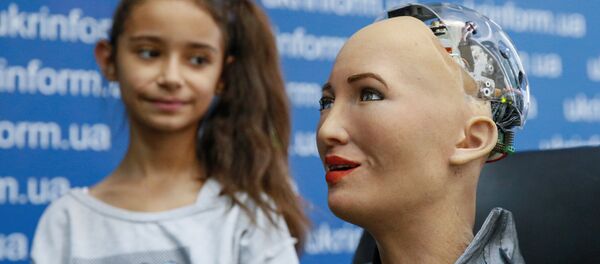Sputnik discussed this with Dr Steven White, who earned his doctorate at MIT and now teaches at Tsinghua University in Beijing.
Sputnik: Doctor, should I start looking for a job?
Sputnik: In your opinion, doctor, how significant is the invention?
Dr Steven White: As it's portrayed now, just recreating a news anchor and being able to talk 24/7, that's not a huge benefit, but I think what's more important is the way they announced said it. This is kind of to get attention, but then the applications could be very useful in other areas. One thing that I'm sure they're looking at is elderly care. The Chinese government is very concerned about elderly people living alone, children living far away, an aging society; having this type of human-like interface for a monitor, essentially, could be extremely valuable.
READ MORE: AI Can Serve us Well, But Humans Are the Business of Humans — Professor
Sputnik: Doctor, do you foresee broadcasting companies in China and abroad using this technology in the near future?
Dr Steven White: Again, I don't think so. If you've seen the play of it, it's really hard to make it the same kind of passion or animation as a human. It can read something that's nice and flat and straightforward, but news shows are also entertainment and they have to connect with the people and it's going to be quite a while before these type of AI anchors would create some kind of connection with their audience, so I don't think it's going to have a major impact for quite a while.
Sputnik: In what other industries similar inventions can be implemented?
Dr Steven White: Just as I was mentioning anything related to care; for children and for older people, I think these are areas where there's a lot of potential. If they can get the interface somewhat functional and more natural and that, over time, they will be able to develop that, and then adding other functions that would go along with that. Things related to being a companion for older people, or even being with small children, I think those are areas that clearly could be useful.
READ MORE: Bitcoin's 10th Birthday: When Can We Expect The Next Boom?
In other service businesses, there might be something there in stores or restaurants, there might be some possibilities for applications there. There's a lot more stores and restaurants and old people than there are news shows, so I think that's where the big potential would be in terms of impact and scale.
Sputnik: Does this invention signal that humans are coming closer to the time when artificial intelligence and robots could rule people's lives? If so, what dangers might we be talking about?
The AI now can only do very simple, very limited tasks; it's very far, far away from what we call "general AI," meaning that it could pick up and learn and make new associations without having been trained extensively. So we're quite far away from being obsoleted but, on the other hand, there will be significant changes in the mid-term and long-term future, that's clear.
Sputnik: We've seen many reports about robots and automation replacing people, can you give advice to the younger generations, what professions should they choose so they won't be replaced by robots and artificial intelligence?
Dr Steven White: I think anything that's about creating them or doing things that use them as a tool, I think that's where our values will continue to be; what kinds of problems to solve, making the situations where you're in that kind of situation, assessing what is a problem, which problem should we focus on and also having the technical know-how to be able to use AI robots and other machines to help you get stuff done.
The views expressed in this article are solely those of Dr Steven White and do not necessarily reflect the official position of Sputnik.






